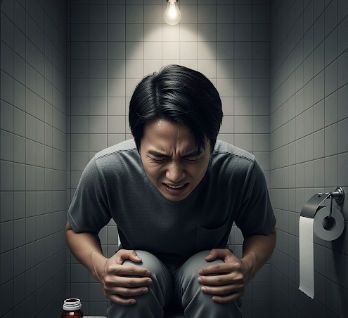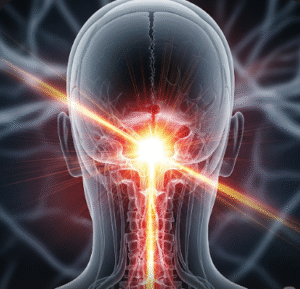Overview
Constipation is a common gastrointestinal condition characterized by infrequent, difficult, or painful bowel movements. It can range from mild and temporary discomfort to a chronic problem that significantly impacts quality of life. While often related to diet and lifestyle factors, constipation can also signal underlying medical conditions.
In South Korea, gastroenterology clinics and digestive health centers provide comprehensive evaluation and treatment for constipation, utilizing modern diagnostic tools, dietary and lifestyle guidance, medications, and minimally invasive interventions.
Key Facts
Highlights:
➡️ Constipation is defined as having fewer than three bowel movements per week, or experiencing straining, hard stools, or a sense of incomplete evacuation.
➡️ It affects all age groups, but is more common in older adults, pregnant women, and people with sedentary lifestyles.
➡️ Chronic constipation can lead to hemorrhoids, anal fissures, fecal impaction, and decreased quality of life.
➡️ Causes include dietary deficiencies, dehydration, medications, medical conditions, and lifestyle factors.
➡️ South Korea provides state-of-the-art gastroenterology care, colonoscopy services, and integrative approaches for managing constipation.
What is Constipation?
Constipation is a disorder of bowel function in which the passage of stool is slow, difficult, or incomplete.
Key characteristics:
- Frequency: Fewer than three bowel movements per week
- Stool Consistency: Hard, lumpy, or dry
- Associated Symptoms: Abdominal discomfort, bloating, straining, or feeling of incomplete evacuation
- Duration: Acute (short-term, often diet-related) or chronic (lasting several months)
Constipation is both a symptom and a condition, and its evaluation focuses on identifying functional, structural, or systemic causes.
What Symptoms are Related to Constipation?
Symptoms accompanying constipation may include:
- Infrequent bowel movements
- Difficulty or pain during defecation
- Abdominal bloating or discomfort
- Hard or lumpy stools
- Straining or prolonged effort to pass stool
- Feeling of incomplete evacuation
- Nausea or loss of appetite in severe cases
Highlights:
➡️ Persistent constipation can cause anal discomfort, hemorrhoids, or rectal bleeding.
➡️ Chronic cases may affect daily routines, sleep, and overall well-being.
➡️ Early recognition allows targeted treatment and prevention of complications.
What Causes / Possible Causes of Constipation?
Highlights:
➡️ Dietary Factors: Low fiber intake, insufficient hydration, and high consumption of processed foods.
➡️ Lifestyle Factors: Sedentary behavior, lack of exercise, and ignoring the urge to defecate.
➡️ Medications: Opioids, anticholinergics, certain antacids, and iron supplements.
➡️ Medical Conditions: Hypothyroidism, diabetes, irritable bowel syndrome (IBS), neurological disorders, and colorectal obstruction.
➡️ Pregnancy: Hormonal changes and pressure from the uterus can slow bowel movements.
➡️ Mechanism: Reduced intestinal motility or obstructed stool passage leads to hardening of stool, straining, and incomplete evacuation.
When Should I See My Doctor?
Highlights:
➡️ If constipation persists for more than three weeks despite dietary and lifestyle measures.
➡️ If accompanied by severe abdominal pain, blood in stool, unexplained weight loss, or vomiting, urgent evaluation is necessary.
➡️ For elderly individuals, sudden constipation may indicate intestinal obstruction or serious systemic illness.
➡️ During pregnancy, persistent constipation requires medical guidance to ensure maternal comfort and prevent complications.
➡️ Early consultation ensures accurate diagnosis, timely treatment, and prevention of chronic or severe complications.
Care and Treatment
Treatment focuses on relieving symptoms, improving bowel function, and addressing underlying causes:
Highlights:
➡️ Dietary and Lifestyle Modifications:
- Increase fiber intake through fruits, vegetables, and whole grains
- Maintain adequate hydration
- Regular physical activity to stimulate bowel motility
- Establish a consistent bowel routine
➡️ Medications:
- Bulk-forming agents (psyllium, methylcellulose)
- Osmotic laxatives (polyethylene glycol, lactulose)
- Stimulant laxatives (senna, bisacodyl) for short-term use
- Stool softeners (docusate sodium) to ease passage
➡️ Behavioral Therapies:
- Biofeedback therapy for pelvic floor dysfunction
- Education on proper defecation posture
➡️ Medical Interventions:
- Treatment of underlying conditions like hypothyroidism or IBS
- Colonoscopy or imaging if structural abnormalities are suspected
- Surgery in rare cases (e.g., severe rectal prolapse or obstruction)
➡️ Monitoring: Follow-up to assess treatment efficacy, adjust medications, and prevent recurrence.
Treatment Options in Korea
South Korea provides comprehensive care for constipation, including:
Highlights:
➡️ Gastroenterology Clinics: Expert evaluation using colonoscopy, imaging, and functional tests.
➡️ Dietary and Lifestyle Guidance: Personalized nutrition and exercise programs for constipation relief.
➡️ Medications and Laxatives: Prescription and over-the-counter options under physician supervision.
➡️ Advanced Therapies: Biofeedback therapy, minimally invasive surgical interventions, and treatment for pelvic floor dysfunction.
➡️ Multidisciplinary Care: Collaboration among gastroenterologists, dietitians, physiotherapists, and surgeons.
➡️ Medical Tourism Support: Multilingual consultations, diagnostic evaluations, and personalized treatment plans for international patients.













